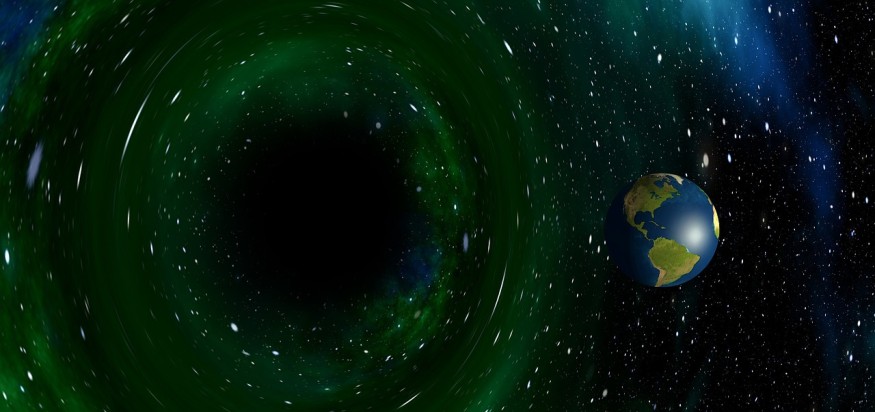A black hole is a region in space with extreme gravity and even light, the fastest thing in the universe, could not escape it. The nearest black hole to the Solar System has been discovered in the Milky Way galaxy. According to research in The Astrophysical Journal, it is estimated to be around 12 times the mass of the Sun and is about 1,550 light-years away.

Primordial Black Holes Birthed in the Big Bang
Astrophysicists are looking into primordial black holes that are flooding the present-day cosmos, Space.com reported. They were forged in the earliest moments of the universe after the Big Bang.
Compared to the modern universe, the early cosmos was wild and complex. But the Big Bang marked the radical phase transition, splitting of fundamental elements and other events that result in today's mild-mannered cosmos.
Scientists seek to understand the physics of the first few minutes before the event and they looked at the extreme conditions that form black holes, like a star collapsing in on itself during the last moments of its life. Stars were not yet present in the first few seconds of the existence of the universe, but the right conditions must have been present to form black holes.
The conditions must have been just right to allow primordial black holes to flood the universe. Fortunately, black holes are not 100% black and they lose mass because of Hawking radiation. It is the complex quantum mechanical process that allows some particles and radiation to escape. The smaller black holes are, the faster they lose mass.
The total number of small black holes in a galaxy depends on how much dark matter there is and how big each one is. But there are too many of them and each one is fast. Computer simulations show that dark matter gas has a velocity of over a hundred miles per second, and an asteroid-mass black hole with that speed could cover the distance between Jupiter and Earth within a couple of weeks.
READ ALSO : Massive Black Hole May Have Done a 180-Degree Magnetic Flip in A 'Strange Explosive Episode'
What To Expect from a Black Hole Hitting Earth?
An article in Big Think explains the odds of a black hole hitting Earth. It says that, although there are a lot of black holes in the universe, and even in the Milky Way galaxy, the odds of them striking Earth are slim.
Black holes are more or less invisible and difficult to detect. Professor Roger Romani from Stanford University told Newsweek that at 1,500 light-years away, the closest black hole to the Solar System is not quite as close as statistics would suggest.
More so, black holes can drift across the galaxy rather than orbit the galactic center. They are called the rogue black holes that have been theorized to be lurking on the edge of the Solar System, silently influencing the orbits of the outer planets with their extreme gravity.
Astrophysicist Steven Tingay explained to Newsweek that there would have to be a very close encounter for Earth to be destroyed by a large black hole. The results of such interaction would be catastrophic even before the planet is destroyed.
According to Discover Magazine, the gravitational effects of the black hole will likely cause spaghettification at the edge of the planet that is closest to the black hole.
Humans may not even feel that the planet is already being swallowed by a supermassive black hole as everything will appear as it once was and it would be some time before disaster struck. But then again, the chances of an encounter with a black hole are slim.
Check out more news and information on Black Holes in Science Times.












